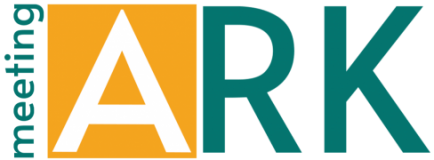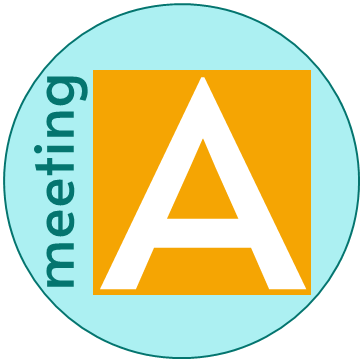2 Commencing a meeting
Public Group active 10 months, 2 weeks agoThe second stage in our model for effective meetings is Commencing a Meeting. The discussion groups on Commencing a Meeting comprise a number of topics, starting with arrival and registration covering those all-important first impressions, followed by agendas and then introductions. [read more]
Agenda
- This topic has 5 replies, 3 voices, and was last updated 2 years, 6 months ago by
 Ron Eagle.
Ron Eagle.
- AuthorPosts
- at 11:24 am #339
 AiYa – MeetingArkAdminKeymaster
AiYa – MeetingArkAdminKeymasterAre they needed? What happens if it is missing? How does one craft an Agenda that helps get meetings done?
at 12:14 am #759 Ron EagleParticipant
Ron EagleParticipantIf you are leading a business meeting, you are responsible for managing a large number of people and actions and outputs. An effective meeting agenda will make sure you discuss all the necessary information, keep the meeting on topic and ensure time efficiency. The key essentials to creating then MANAGING a good agenda are:
- Identify the meeting’s goals i.e. outputs (some action or event that changes the nature of a situation, person or item …. or its not an output) clearly and concisely.
- Ask ALL participants for input …draw them out…don’t let one view dominate.
- List clearly the questions you want to address and what OUTPUTs you expect.
- Identify the specific purpose (it should produce or assist the production of an output) of each task.
- Estimate the amount of time to spend on each topic and manage that during the meeting…if something seems important enough agree separate session to expand on it later.
- Identify who leads on each topic.
- End each meeting with a review of actions agreed. names against those and dates to be completed and issue those action minutes to all..
at 11:46 am #763 AiYa – MeetingArkAdminKeymaster
AiYa – MeetingArkAdminKeymasterThank you, Ron
My personal experience is that there seems to be a balance point for each meeting in terms of how specific the agenda points and outcome are. If the points are too detailed (twenty items for discussion in a 60 minute meeting) I have seen just the first five actually getting discussed…
I think you point about clarity of outcomes is crucial – one helpful approach is to ground the outcomes in sensory terms (what would we see, hear and feel if we had Outcome X). People will have different criteria to know if they have achieved the same outcome.
My other thought is to go round the room and get everyone’s explicit agreement – on an individual basis – that these are our agreed outcomes for the meeting. This seems to produce a more aligned meeting than a comment addressed to the whole group.
at 4:54 pm #780 Ron EagleParticipant
Ron EagleParticipantI agree with most of your points except the one about having a new ’round robin’ on the expected outcomes. Outcomes for the session should have nee explicit beforehand and set for a specific purpose. Attendees should be aware of this beforehand too. Asking for ratification at the meeting of its purpose is a recipe for anarchy , time wasting and failed outcomes. ( – example: Field Marshall Montgomery: “gentlemen we are here, as per your summonses, to plan the invasion of Normandy”….General Bat-Hat: ” Er no I think we should discuss The refurbishment of the Officers’ mess”….General Whatnot,”No I’d like to discuss the Norway campaign”…etc….. So no I think NOT a good idea to review the meetings objectives during the meeting…that should have happened well before now and NOT agian here.
at 3:36 pm #4243 kieranfoleyParticipant
kieranfoleyParticipantInteresting points, Ron
I was wondering if people have any thoughts on the subject of setting an Agenda?
My impression is that successful meetings seem to follow an agenda which is ‘chunked’ in a specific way. There are not more than 3-4 broad areas to be covered, and each area never has more than 3-4 subsections, if any. Personally I find few things more demoralizing than a 30 point agenda, going down into 1.2.3.5. numbering – knowing that many of the items will not be covered. It seems to me to be a recipe for failure.
Ki
at 1:51 pm #4849 Ron EagleParticipant
Ron EagleParticipantI agree – a 30 point agenda is not a recipe for an effective meeting. Meetings tend to fall into 2 broad categories: update advice with consequent negotiations/ actions set or developmental where one or more concepts of situations are posed and creative discussions happen with actions agreed to progress those outcomes. In either case, unless you wish for dilution of interest and effectiveness after a time, the number of agenda points should ideally remain in single figures. There is a possible exception where a meeting is intended merely for updates with no requirement for further discussion/working of agenda points – or very little maybe beyond a select number of questions. This could be for example a formal progress briefing, official statement etc.,
- AuthorPosts
- You must be logged in to reply to this topic.



